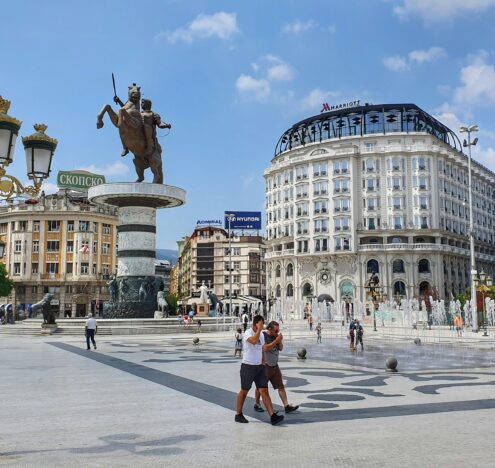This analysis was featured in Critical State, a weekly newsletter from Inkstick Media and The World. Subscribe here.
A pandemic should be a near-perfect showcase for what a state can do. Pandemic response requires generating large amounts of information about everything from infection rates to hospital capacity. It demands collective action and widespread communication to understand and make clear the actions necessary to contain the disease. And it often takes a certain amount of coercion to ensure that people take those necessary actions. Yet, after a year, in many places around the world the COVID-19 pandemic has become a showcase of what states are unable to do, forcing people to adjust their concepts and expectations. This week and next, Critical State takes a deep dive into new research on the limits of state power to influence the pandemic and how states work to expand those limits.
State communication on COVID-19 has failed in some places due to the state’s lack of credibility among audiences it needs to reach to coordinate pandemic response. Areas of civil conflict are prime examples of this phenomenon — in places where the state is in a violent contest with local groups over its own legitimacy to rule, people tend to take state pronouncements with at least one grain of salt and are reluctant to share information with government authorities. Political scientists Dotan Haim, Nico Ravanilla, and Renard Sexton set out to measure the scale of the public health communication challenge states face in areas of civil conflict, and to test a theory of how to possibly overcome the challenge. In a forthcoming letter in the American Political Science Review, they present the results of an experiment they conducted in conflict-affected areas of the Philippines, to improve communication between the government and local leaders on COVID-19-related issues.
In places where the state is in a violent contest with local groups over its own legitimacy to rule, people tend to take state pronouncements with at least one grain of salt and are reluctant to share information with government authorities.
Like everyone else, Haim, Ravanilla, and Sexton were in the middle of doing something else when COVID-19 upended their lives. Unlike everyone else, however, the thing they were doing was running a long-term field experiment studying a Filipino government program called Usap Tayo (Let’s Talk.) The program is meant to build up relationships between elected local leaders — known as barangay kapitans — and municipal government structures in areas where the insurgent New People’s Army (NPA) is fighting the Filipino state. About 200 barangays were randomly assigned to participate in the program, while the researchers monitored another 600 as controls. In theory, Usap Tayo should engender trust between kapitans and state officials, which should lead to kapitans being more capable of accessing state services and more willing to share information with the state.
The Usap Tayo meetings were ostensibly about informing kapitans of the state services they could provide in their barangays, but the meetings were mostly designed to build trust. Kapitans met with municipal officials every six weeks, working repeatedly on constituent-level issues to relieve mutual suspicion and cement relationships. Five months into the project, the first COVID-19 case was confirmed in the Philippines. The meetings were halted as a COVID-19 precaution two months later, meaning that participants were able to get roughly four trust-building meetings in before that trust was really tested.
When COVID-19 hit, Filipino authorities established a protocol that required localities to collect data on at-risk populations, travel to Manila, and track incidence of virus symptoms among the community. It wasn’t safe for state health workers to travel to NPA-controlled areas, so the state was relying on kapitans to gather and report the information. Overall, the result was a perfect example of the limits of state power, even in a pandemic. Of the 800 villages that the researchers tracked — both those that participated in Usap Tayo and those that did not — only 426 actually sent in the requested data. Not even a terrifying new virus could compel basic cooperation with the state from nearly half of the kapitans.
However, there is evidence that the relationships built in Usap Tayo made a difference. Kapitans who participated in the program were 20% more likely than those that did not to gather and submit data for their barangays. The total was still low — only 61% — but a significant improvement in state communication, nonetheless. Haim, Ranavilla, and Sexton note that the biggest effect was among kapitans who have a positive view of the NPA and a medium level of trust in the government. Crucially, it also only had an effect among kapitans who thought that patronage connections were the only way to access state services. By giving those local leaders an avenue to build personal connections with officials who might dispense services, Usap Tayo also gave them a reason to give state officials something in return: COVID-19 data. A strong patronage connection is, after all, a two-way street.




















